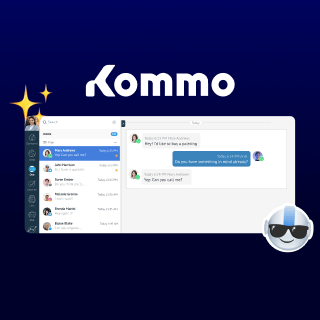When creating a new WhatsApp template in Kommo, you can add the following information to it:
-
Title: Choose a name for your template
-
WABA ID: Select the WABA account this template will belong to
-
Category: Choose from Utility or Marketing templates
-
Language: Select the language of the template text
-
Header: Add text or multimedia content for the header section
-
Body: Provide the main template text
-
Footer: Add text for the closing footer section
-
Buttons: Include call-to-action buttons like “Learn More” or links to another page
On the right side of the “New template” window, users will see different markers. These markers (inserted with the square [ ] brackets) will automatically identify the data from the lead/contact/ or company card into the template (i.e if they have [Contact name] marker inserted in the template, it will be automatically replaced with the full contact name after sending it.)
When you’re creating a template in Kommo, you can choose which special fields you want to add to it (e.g. “Lead name”) by clicking on them at the right-side of the form.They’re called placeholders and they will fill automatically based on each client’s information to help you make your message template adaptable for different clients. For example, in the image above “Hey [Contact name], you have an appointment with [Responsible user] on April 6 at 2 pm. Looking forward to seeing you!” the placeholders selected were [Contact name] and [Responsible user]. When you choose them in Kommo, you will be requested to provide an example of how it will look like in the template. This example field will appear on the bottom of the form.
Likewise, Meta will decline message templates that only consist of placeholders without any accompanying text, as they could potentially be misused for spamming customers.
Here is an example: “Hi [Lead name], [ID]. [Lead status].”
For more information on preventing template rejection, check Common reasons for template rejection section.









